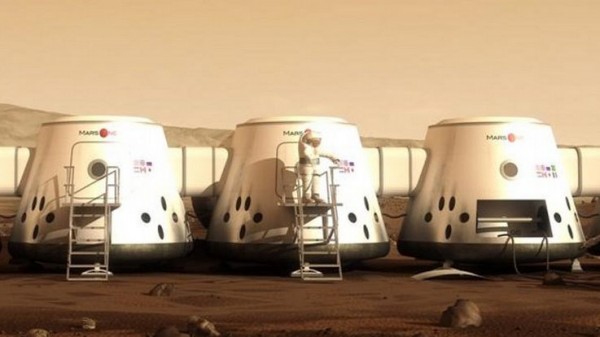Winning The Lottery: The Ultimate Isolation
"Being confined with the same individuals for such a long period of time millions of miles from Earth might create psychological and interpersonal stress for the crew members and affect their ability to carry out mission goals."
"People have been on-orbit for as long as 14 months with no apparent negative sequelae, but this duration was relatively brief compared to a Mars mission, the crew had real-time contact with mission control and family and friends on the ground, and the Earth was always in sight."
Nick Kanas, Journal of Cosmology: Expedition to Mars: Psychological, Interpersonal and Psychiatric Issues, 2010
 |
| International Space Station, Photo Dave Walker |
"I've lived it, and I can describe it."
"You get tired of holding back. You get tired of accommodating other people's quirks and idiosyncrasies. ... It's psychological erosion."
"The truth to all these additional complexities is they don't make things easier. With such a small crew, the characteristics of individuals are really what counts."
"You don't necessarily want to go there with your best friend. [Gender or ethnic or cultural parity or marital mix are] more likely to divide than to somehow unite."
"[Most astronauts come from a military or scientific elite, the] prima donnas of their trade."
Pascal Lee, planetary scientist, co-founder, chairman, Mars Institute
 |
Image courtesy of the Earth Science and Remote Sensing Unit, NASA Johnson Space Center
The thin green line of an aurora borealis cuts below the moon
and above the radial lights of Moscow in this recent nighttime image |
"It felt like winning the lottery. I think it's very easy for people to criticize, for people to point to the latest study that says it's a suicide mission, or there's no way you're going to survive."
Karen Cumming, Canadian on Mars One mission short-list

The Mars One project aims to establish the first human
colony on Mars, but all tickets to the red planet are one-way only
organizers warn. (Mars One)
Scientists are professionals whose work takes them to some of the unlikeliest places on the planet, exploring nature in ways that most people would never think of in a never-ending quest for understanding the complexities and permutations of natural processes at every level of existence. And some of those scientists are astrophysicists, whose interest in space flight studies, along with psychologists involve them in trying to assess how isolation impacts on humans, the kind of isolation that is beyond the imagination of the ordinary person.
Who couldn't conceive of being enclosed in a very finite space conducting experiments and interacting with a few people who share their mission of exploration in outer space at a given time, remote from the world most familiar to us, in a far-off distant revolution of the planet we call home, viewing it from their space platform, adjusting to the reality that if the mechanics of the science that brought them there malfunction they may never return.
But it is the interpersonal social interaction of a handful of individuals all in isolation from what they know best and are most comfortable with, sharing that compact area that a space capsule provides and manipulating devices that enable them to live in a dark, atmosphereless void, and the minor irritations that surface when people of different temperaments work together with no opportunity of escaping one another's presence that is of interest in evaluating the human-dimension success of a mission.
Apart from the way in which space affects the human body, the focus is also on how space and its inevitably exciting yet perhaps also alienating effects on the human mind affects those working together in such stark isolation, that psychologists are consumed with. "If there's anything that you can predict about what will happen to people in space [it] is that there will be conflict, for sure", commented Jordan Bimm, a NASA research fellow at York University, Toronto.
The worst manifestation of dysfunction in space is known as "third-quarter syndrome" in reflection of its typically late onset in a mission. In the Mars500 crew emerging after 17 months in an isolation pod in Moscow in 2011, ailments were exhibited that included severe insomnia. Psychological research has identified negative feelings breeding resentment take place among people living together in close proximity, and overall isolation.
People become irritable, they are prone to committing errors, they experience cabin fever on an immense scale. Cosmonaut Valentin Lebedev's diary of his experiences in space was used to diagnose depression on his 211-day mission aboard Salyt 7. "We don't feel time anymore. I don't even want to look out the porthole any more", he wrote on one dark-feeling day. Stories surfaced of Russian astronauts not speaking with one another for months.
In hopes of averting crises such as these, research is being conducted on the use of robot psychologists which record and manage the stressors astronauts might not want to speak of but which have the potential of posing a threat to the success of a mission. As part of a study to determine how humans might deal with extreme isolation, Koichi Wakata of Japan brought with him Kirobo; "hope robot", when he took over as commander of the International Space Station in 2013.
Dr. Lee, who has gone on 30 expeditions to polar regions, and acted as director of the Haughton-Mars Project in the Canadian High Arctic, has identified five criteria for a good astronaut: deep knowledge (expertise in a number of areas); good health (because it will take 3 months to reach a hospital); motivation (deeper-sourced in the psyche than enthusiasm), adaptability and altruism. Another list was composed by Raye Kass, professor of applied human sciences at Concordia: resiliency, adaptability, curiosity, ability to trust, creativity/resourcefulness.
The longest time spent in space thus far was recorded by Valery Polyakov, a Russian doctor who was on the Russian Mir for over 437 days. And then, he returned to Earth to begin re-acclimatizing and to resume his life on our planet. For Karen Cumming and those others who applied for the Mars One mission to land crews of four in multiple missions to Mars to begin in 2024 with the purpose of establishing a permanent colony, there will be no return. That is to be a one-way trip.

An image of what the Mars One permanent human colony on Mars may look like. (Photo : BasLansdorp/Twitter)
Their seven-month journey is to lead them to an experiment to inhabit a permanent home away from Planet Earth. To establish a settlement there, and to become self-sufficient. That is something the successful choices may consider the adventure of a lifetime, but it will be for their lifetime, a commitment that doesn't come with a Plan B for escape from the mind-numbing reality of distance from Earth, and that acceptance that they've chosen a new home for themselves.
Labels: Environment, Marketing, Nature, Space

0 Comments:
Post a Comment
<< Home